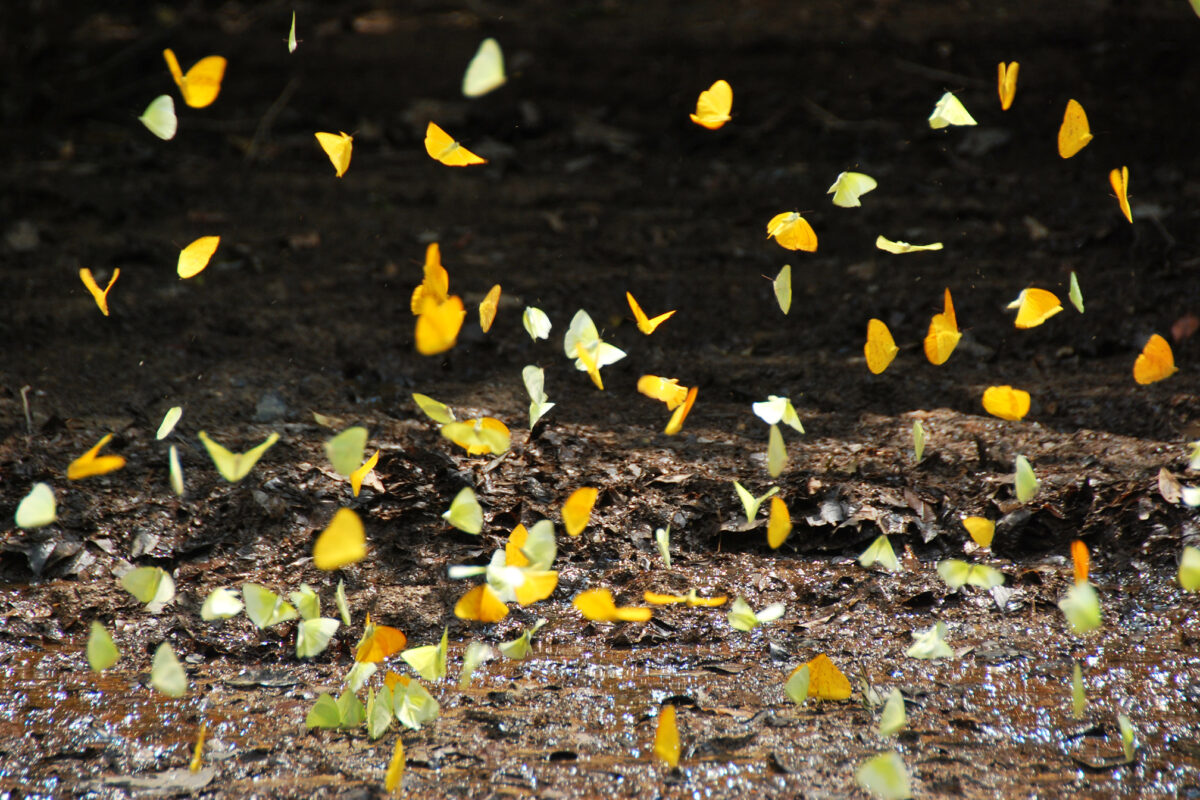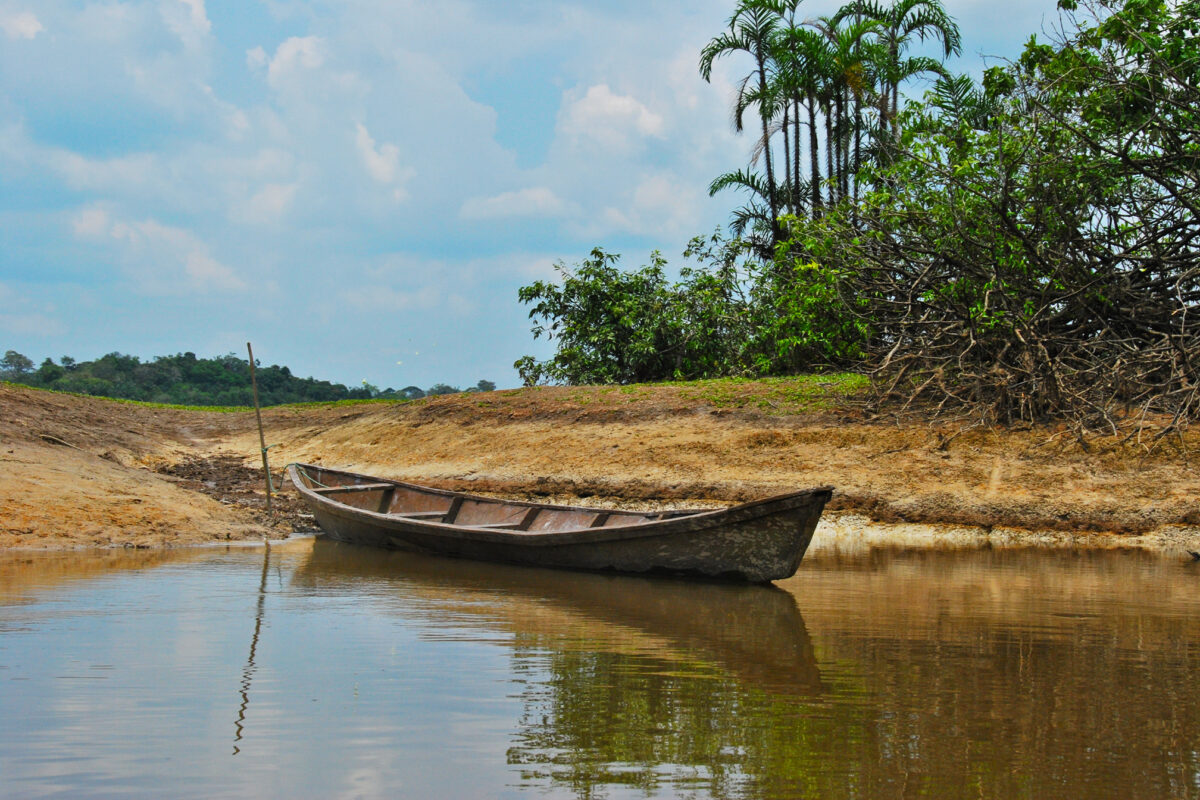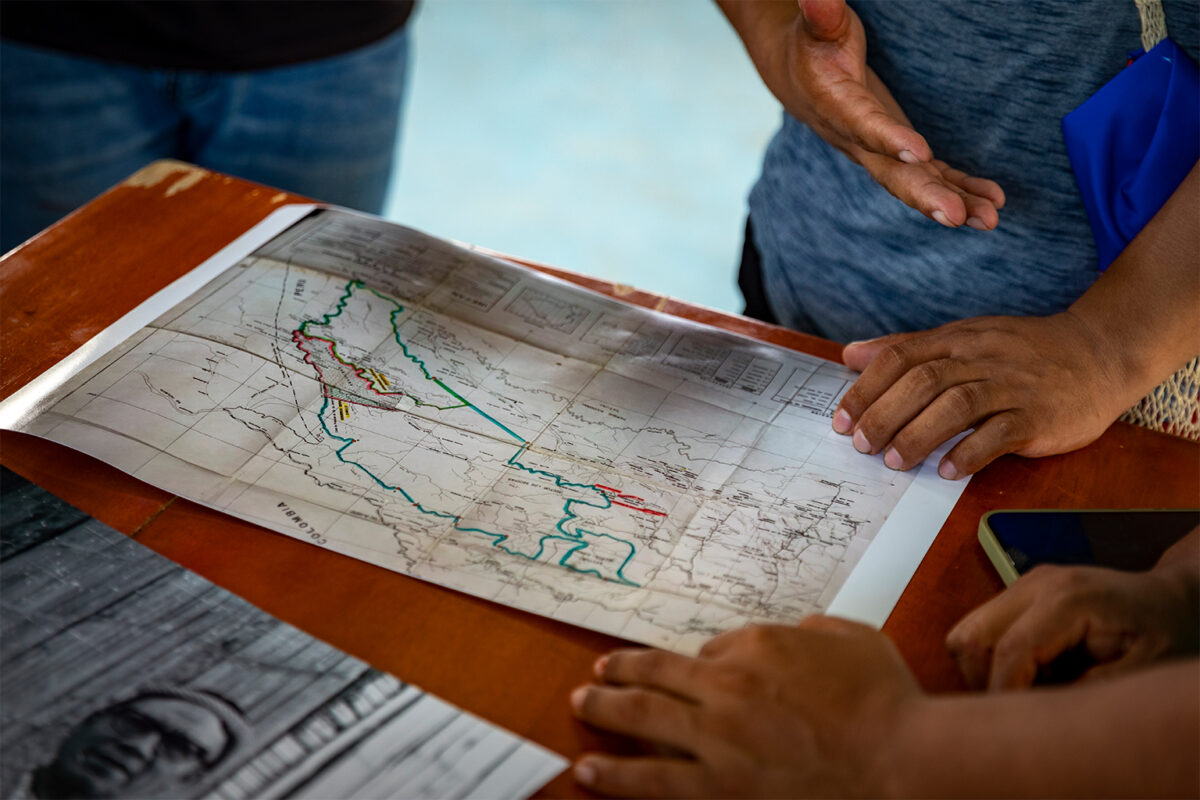- In a meeting with nine Amazon state governors called by Jair Bolsonaro to discuss the region’s wildfires, the president pushed the states to back his policies which seek to bring major mining and agribusiness operations onto indigenous lands. Doing so would be a direct violation of the 1988 Constitution.
- Backing Bolsonaro were the governors of Acre, Roraima, Tocantins, Rondônia, Amazonas, Mato Grosso and Amapá states. Only the Pará and Maranhão governors opposed opening more forest areas to development and favored upholding current indigenous land use rights.
- Most of the state governors agreed with Bolsonaro that indigenous groups hold control over too much Brazilian land that could be mined or turned over to agribusiness, greatly profiting the nation, while also bringing indigenous people into mainstream Brazilian society.
- The federal Congress is presently crafting legislation that could open indigenous lands to mining and industrial agribusiness. It is also preparing to vote on a bill that seems likely to pass and would allocate R$ 1 billion (US$ 240 million) to combat deforestation and fires in the Amazon and carry out land regularization.

It is not only President Jair Bolsonaro who views rainforests and indigenous people as obstacles to Brazilian economic development. Seven of the nine Amazon state governors are in line with the policies of the chief executive, as attested to at an August 27 meeting between the president and representatives of the states within Legal Amazonia.
Although the agenda set for that day was a discussion of deforestation and the Amazon fires, Bolsonaro used the meeting instead to push his development goals: abolishing Indigenous Lands (TIs) and protected areas to facilitate agribusiness and mining expansion.
Those aligned with the president include the governors of Acre, Roraima, Tocantins, Rondônia, Amazonas, Mato Grosso and Amapá states. Only Helder Barbalho, representing Pará, and Flávio Dino, of Maranhão, opposed opening more forest areas to development and favored upholding indigenous rights as they currently exist.
The need for continuing the Amazon Fund — with most of its assets now frozen by Norway in protest against Bolsonaro’s policies — and the need for land regularization were the only subjects on which the nine governors seemed to agree.
Bolsonaro barely spoke of the Amazon fires, except to say that they “are below average compared to the last few years,” which is false; the last time January-to-August fire totals were higher than now was 2010, according to the administration’s own data. Bolsonaro spent more time attacking the demarcation of indigenous lands and the extent of preserved areas.
One example: when Acre Vice Governor Wherles Fernandes Da Rocha asked for federal help with the fires, the president completely changed the topic:
“You talked about an environmental problem. Approximately how much of your state is taken over by indigenous reserves and ecological stations?” the president asked.
“We have 14 percent open areas; the rest is forest,” replied the vice governor.
“So on 86 percent [of your state’s lands] you cannot do anything. It is a state that has 86 percent of its territory unfeasible [for production], even for sustainable exploitation,” said Bolsonaro.
The President responded with similar single-mindedness after other governors spoke, asking about, or quoting numbers of, existing and yet to be demarcated indigenous lands and protected areas in the respective states.
Bolsonaro asked Roraima Governor Antonio Denarium: “Do you have any idea why so many indigenous lands were demarcated in your state?”
“It was the result of indigenous policy,” Denarium replied. “Roraima is not [only] the richest portion of land in Brazil, it is the richest portion of land in the world, and indigenous areas and NGOs throughout the country are concentrated there where we have our wealth.… We have to do mineral exploration in indigenous areas. Roraima can be the nation’s [economic] savior as long as it exploits minerals [on indigenous lands].”
In March, the Bolsonaro administration announced plans to permit mining on indigenous lands, including in the Amazon, with or without indigenous consent. The government also intends to allow mining right up to Brazil’s borders, abolishing the current ban along a 150-kilometer-wide swath at the frontier. The indigenous mining plan is in direct opposition to indigenous land rights as guaranteed under Brazil’s 1988 Constitution.

“Indians want to work”
Rondônia Governor Marcos Rocha briefly addressed the Amazon blazes: “It is not the farmers who are burning our Amazon,” he stated, offering no evidence to back his claim.
Then, like Bolsonaro, he switched subjects: “I went to the Roosevelt Indian Reserve with [Environment Minister Ricardo] Salles and we talked with the Indians. They want to work because those places have the greatest riches in Brazil. Diamonds, niobium, gold, cassiterite and so many other ores. It is possible to use those resources sustainably in a manner that preserves the environment and at the same time enrich our people,” he asserted. While some indigenous people do approve of mining or agribusiness on their lands, there is no evidence that Rocha’s is a majority view, though this is a storyline pushed hard by the administration.
Opening the rainforest to mining companies is also part of the plans for Amazonas state. According to The Intercept website, last June governor Wilson Lima began negotiations with The InterAmerica Group, a Washington DC-based lobbying company, to attract US mining and agribusiness companies to the state.
Mato Grosso Governor Mauro Mendes spoke about the fires and on behalf of agribusiness expansion: “Brazil’s image is extremely important to our relations with most of our clients [in the] outside world. Sixty percent of the state’s GDP comes from exports. So when we have a problem [like the one] that happened a few days ago [with the Amazon fires] and took undesirable [international criticism], I got very worried.”
He added: “There are 43 indigenous ethnic groups in the state. Next October we will have a seminar on mechanized agriculture on indigenous lands, and we already have 24 groups interested. That is because they want to have their dignity through their work, by exploring their lands.”
Bolsonaro reassured the governor, saying, that Brazil can “include the Indian in our society; to a great extent he already wants that. We want to legitimize illegal mining [as well]. This [plan] is moving forward in the Ministry of Mines and Energy, and we soon intend to present a proposal to Congress, as there are very rich lands underfoot in the Amazon.”
The federal government is currently preparing legislation to regulate exploration and extraction of minerals, energy and water resources on indigenous lands. According to official estimates, the document will be ready to begin moving thru Congress next month.
The same day Bolsonaro met with the governors, the Brazilian House of Deputies’ Committee on Constitution and Justice (CCJ) approved a proposal for a constitutional amendment that would allow agricultural and forestry exploitation on indigenous lands. The text, which must go through a special commission and be approved by Congress, would allow indigenous communities to “be autonomous to manage their assets and the selling of production.”
The President of the House Rodrigo Maia, however, said he will not create a special commission to move the bill if any controversy arises. Likely referring to the Amazon fires, he said “If something generates more negative narratives for Brazil, [the measure] will stay where it is, at the CCJ.”

Voices of dissent
Contrary to Bolsonaro’s position, Pará Govenor Helder Barbalho defended the need for G7 aid and the Amazon Fund, by which developed nations provide money for sustainable projects that limit deforestation. “It is not right to give up that income. We all know the fiscal difficulties our states face,” he said. “And if the G7 signals with $20 million, which by the way is a very small resource… for the seven biggest global powers, I think we have to ask for more resources.” Bolsonaro has for now rejected the $20 million G7 offer.
In addition, the Pará Governor proposed that private landowners be rewarded not to deforest, even in permitted areas. “We need to negotiate with them: ‘You will be paid by the federal and state governments to leave the forest standing and to produce more on the lands you already have anthropized [converted via human action],’” he said.
Barbalho advocated not for converting more rainforest into agricultural lands, but for intensification of production to better utilize already degraded lands. “Our ratio is 0.9 head of cattle per hectare, and we have 21 million head. If we move to an average of three head of cattle per hectare, we will go from 21 to 60, [to] 65 million head [of productivity] without killing a tree. It would be an extraordinary solution, matching the conservation of the forest with the power and vocation of production,” he said. This is a deforestation solution that conservationists strongly advocate.
Bolsonaro replied that no more lands would be conserved because the process has already generated “a true psychosis regarding demarcation and expansion of [protected] lands in Brazil.”
About the Amazon Fund the president said: “Much of the money comes from abroad, and it comes at a price: demarcation of indigenous lands, conservation areas, quilombolas, national parks. That leads to a place we already know, Brazil’s insolvency. We will have to face that issue somehow.” He offered no evidence that receipt of Amazon Fund moneys has ever been linked to any kind of mandatory land conservation.
Maranhão Governor Flávio Dino also opposed the president by arguing the importance of NGOs in managing environmental programs in cooperation with indigenous groups. “Demonizing NGOs is a mistake because there are very serious [nonprofit] organizations in Brazil and around the world, so we cannot say they are our enemies. Many of them have been operating in the country for decades… and they can help protect the Brazilian Amazon.” Bolsonaro strongly disagrees with this role for NGOs, and sees them instead as an invasive international influence and threat to Brazilian sovereignty.
Dino continued: “In the same sense of cooperation, I would like to highlight the role of indigenous peoples. They are Brazilians, holders of rights that must be respected, [and their rights] are inscribed in the Constitution and we cannot ignore [them].”
To which Bolsonaro replied: “Do you know how many certified quilombola territories [populated by descendants of runaway slaves] exist in Legal Amazonia alone, and how many are in the final stage of the demarcation process? 936. Indigenous reserves in the final phase, 54, and in the next few months, 314. That war is beyond the states, it is Brazil’s war. With all the quilombolas, the reserves, and with environmental protection, our agribusiness will be made impossible. And if agribusiness is over, our economy is over.”
Determined to set his vision in motion, Bolsonaro ordered his ministers to meet with the governors on September 2 and send a package of new measures to Congress. In that meeting, five Amazon governors and ministers discussed measures to combat environmental crime and to promote forest preservation, while also exploring economic development. Among those attending were Minister of Agriculture Tereza Cristina (a ruralist with large agricultural holdings) and Minister of Defense Fernando Azevedo, who confirmed the arrival in the Brazilian Amazon of two firefighting aircraft from Chile.

Congress acts
On September 3, Chamber of Deputies head Rodrigo Maia and the bancada ruralista agribusiness lobby met at the Confederation of Agriculture and Livestock (CNA). Perhaps fearful of international sanctions, they opposed Bolsonaro’s draconian environmental policies, and set an alternative environmental agenda to counter criticism from the international community for the increase in deforestation.
Maia hopes to quickly put to a vote some bills that have consensus in Congress, including one that combats illegal Amazon deforestation and another that establishes a National Payment Policy for Environmental Services. If approved by the legislature, R$ 1 billion (US$ 240 million) will be allocated to combat deforestation and fires in the Amazon, with R$ 630 million (US$ 153 million) going to the Armed Forces, the Ministry of Environment and IBAMA (Brazil’s environmental agency), to combat and prevent fires, as well as for land regularization in the region. The states suffering from fires would receive the remainder.
How exactly Bolsonaro’s plans to move large-scale mining and agribusiness operations onto Amazon indigenous lands will fare remains to be seen, especially now that the Amazon fires have attracted world attention. But it is clear that the president has strong, though not unified backing among Amazonian states.
Banner image: President Jair Bolsonaro during the Amazonian governors meeting, August 27, 2019. Image by Marcos Corrêa / Agência Brasil.
FEEDBACK: Use this form to send a message to the author of this post. If you want to post a public comment, you can do that at the bottom of the page.














